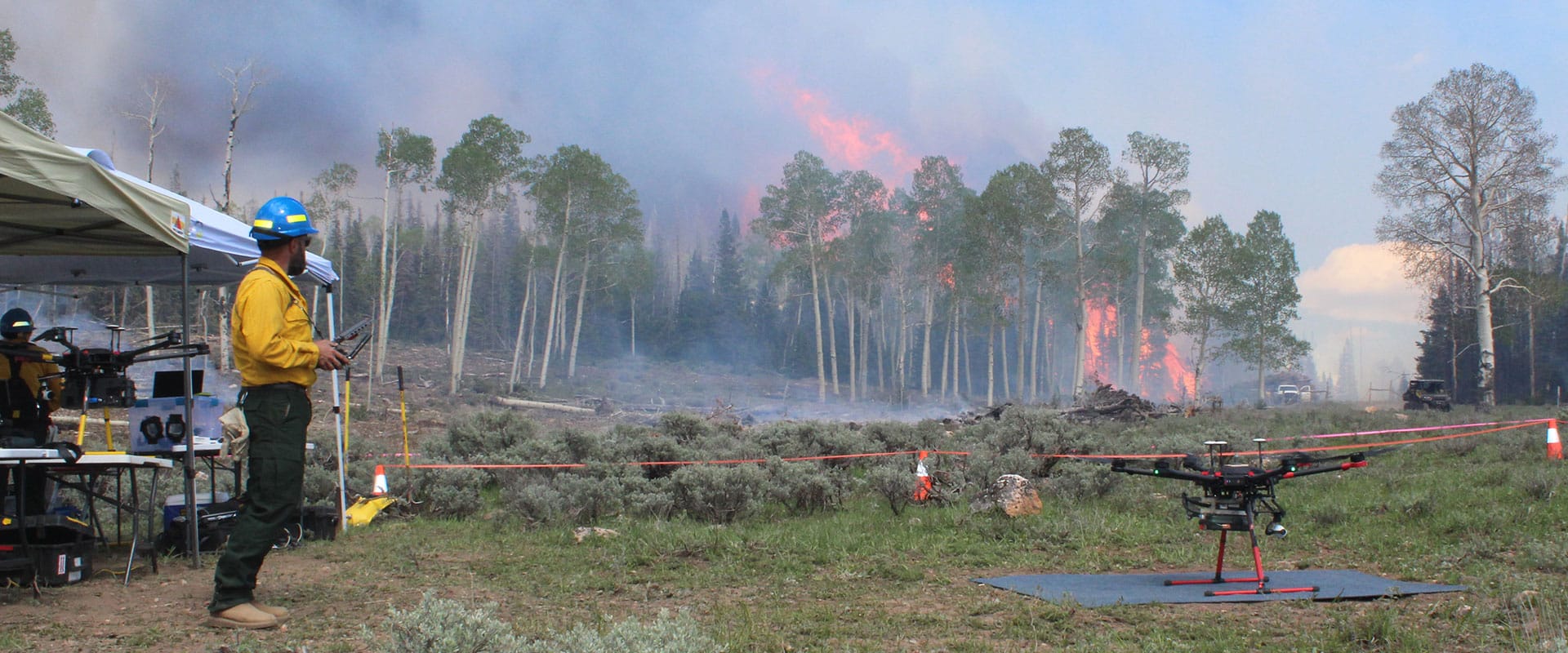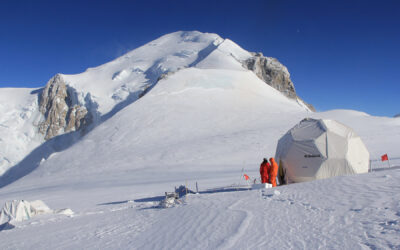
May 17, 2022
LAS VEGAS
Fire Science
Wildland Fire Research
Workforce Development
Nevada Receives National Science Foundation Research Award for $20 Million
To increase capacity for wildland fire research, education, and workforce development
The Nevada System of Higher Education (NSHE) has been awarded $20 million over a period of five years for the Harnessing the Data Revolution for Fire Science (HDRFS) project. This project is funded through the National Science Foundation Established Program to Stimulate Competitive Research (NSF EPSCoR); whose mission is to enhance research competitiveness of targeted jurisdictions (states, territories, commonwealth) by strengthening STEM capacity and capability.
The overarching goal of the RII Track-1: Harnessing the Data Revolution for Fire Science (HDRFS) project is to increase the capacity of Nevada for wildland fire research, education, and workforce development and to demonstrate this increased capacity through technology-enhanced fire science in the regionally important sagebrush ecosystem.
This system-wide partnership involves the three research institutions, the Desert Research Institute (DRI), the University of Nevada, Las Vegas (UNLV), and the University of Nevada, Reno (UNR). Further involvement includes faculty and students from NSHE undergraduate institutions.
“NSF continues to serve as an essential partner in supporting the critical work of the NSHE EPSCoR,” said NSHE Board of Regents Chair Cathy McAdoo. “As our region currently faces extreme fire and water challenges, we appreciate this investment in Fire Science research and workforce development; giving NSHE institutions (DRI, UNLV, UNR) more capacity to solve our most pressing environmental issues.”
This project will inform and improve land and fire management by providing scaling of fire effects and impacts from smaller to larger fires in four fire science areas: Ecology; Hydrology between fire events; Fire Processes; and Fire Emissions and their Atmospheric Aging during fire events. This will be achieved through strategic investments in expertise, facilities, Cyberinfrastructure Innovations, and Education and Workforce Development creating end-to-end pipelines for research and STEM advancements.
“This project will generate and harness large amounts of data from diverse sensor platforms to accurately model landscapes and wildland fires from plot to watershed scales,” said Frederick Harris, Nevada NSF EPSCoR Project Director. “We will study how fires impact the societal needs outlined in the Nevada Science and Technology Plan.”
In addition, NSHE researchers will study potential new areas of economic development for Nevada, emphasizing new opportunities for workforce development, diversity, hiring new faculty, and providing more scholarship opportunities for undergraduate and graduate students in STEM fields.
“This NSF award funds critical fire science research, which continues to be a priority for Nevada,” said DRI President Kumud Acharya. “DRI has expertise in wildland fire research, and we look forward to working with our fellow NSHE institutions on this important project.”
The award will enhance Nevada’s capabilities in wildland fire science, UAS, data acquisition, processing, and modeling, and rapid deployment, while strengthening Nevada’s network of external collaborators and stakeholders, who already include the major fire and land management agencies in the Great Basin and Western United States.
“This marks an important investment for Nevada and the West,” said UNR President Brian Sandoval. “This National Science Foundation EPSCoR-supported project takes a comprehensive, collaborative approach. It will enhance the capacity of Nevada’s public research institutions to further tackle an issue of utmost importance and will do so by further deploying technology and cyberinfrastructure, and further building on the expertise and capabilities of our researchers and faculty.”
“By joining forces, UNR, DRI, and UNLV are poised to reveal the power of cooperation in Nevada when it comes to addressing challenges important to the state and beyond its borders,” said UNLV President Keith Whitfield. “This research will advance our fundamental understanding of wildfires as it strengthens the capacity of our campuses to engage with each other and with Nevada’s students and citizens in addressing today’s complex challenges. This is but one example of how research works for Nevada.”
###
About NSHE
The Nevada System of Higher Education, comprised of two doctoral-granting research universities, a state college, four comprehensive community colleges, and one environmental research institute, serves the educational and job training needs of Nevada. NSHE provides educational opportunities to more than 100,000 students and is governed by the Nevada Board of Regents. The System includes the University of Nevada, Las Vegas, the University of Nevada, Reno, Nevada State College, Desert Research Institute, the College of Southern Nevada, Great Basin College, Truckee Meadows Community College, and Western Nevada College. For more information regarding NSHE please visit: https://nshe.nevada.edu/
About the Nevada System Sponsored Programs and EPSCoR
The mission of the Nevada System Sponsored Programs and EPSCoR is to promote collaboration and multidisciplinary learning among NSHE institutions, and to enable alignment of efforts with the needs of the state to increase research and STEM competitiveness. The goal is to create new opportunities in the State of Nevada for workforce development and promote the development of Science, Technology, Engineering and Mathematics (STEM) disciplines for the state. For more information regarding Nevada EPSCoR please visit: https://epscorspo.nevada.edu/
About DRI
The Desert Research Institute (DRI) is a recognized world leader in basic and applied environmental research. Committed to scientific excellence and integrity, DRI faculty, students who work alongside them, and staff have developed scientific knowledge and innovative technologies in research projects around the globe. Since 1959, DRI’s research has advanced scientific knowledge on topics ranging from humans’ impact on the environment to the environment’s impact on humans. DRI’s impactful science and inspiring solutions support Nevada’s diverse economy, provide science-based educational opportunities, and inform policymakers, business leaders, and community members. With campuses in Las Vegas and Reno, DRI serves as the non-profit research arm of the Nevada System of Higher Education. For more information, please visit www.dri.edu.


